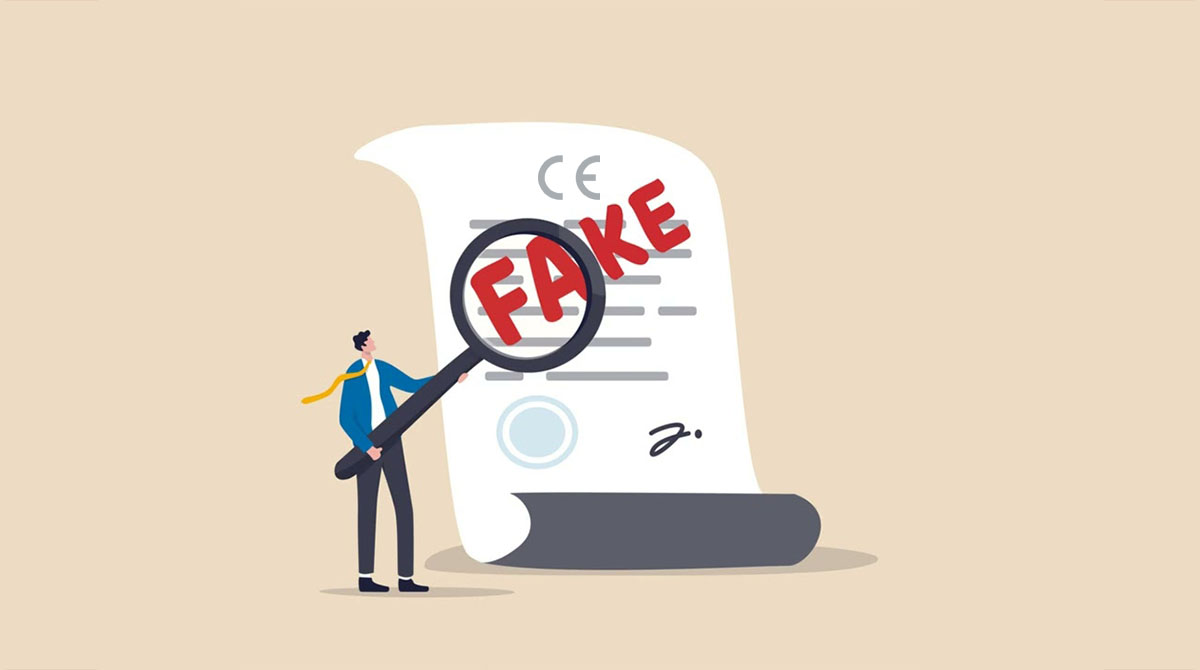
How to Differentiate Between a Genuine and Fake CE Certificate?
The CE certificate is a mark that indicates a product sold in the European Union (EU) market complies with safety, health, and environmental protection requirements. It signifies that the product adheres to all EU regulations and has undergone specific testing. However, not all CE certificates are genuine or valid. So, how can you distinguish a genuine CE certificate from a fake one?
Authenticity of the CE Certificate: Identity and Certification Review
The first step in verifying the authenticity of a CE certificate is to examine the information of the issuing Notified Body. The CE mark is not only necessary for marketing products in the European market but also demonstrates compliance with relevant EU regulations and standards.
If the CE certificate includes a Notified Body number, you can verify its validity on the official EU website.
- Characteristics of Fake CE Certificates:
- Often contain incorrect or incomplete information.
- May not include a Notified Body number.
The issuing organization must be recognized and approved. At SERTIFİKE, we specialize in guiding you through the CE certification process and protecting you from fake certificates.
Certificate Format and Details
A genuine CE certificate must adhere to a specific format and include particular details. It should clearly state:
- The product name.
- Manufacturer's name.
- Production location.
- Approved information confirming compliance with EU regulations.
Fake certificates often lack these details or contain inconsistencies. Genuine CE certificates are accompanied by supporting documents, such as manufacturer or supplier approvals and required test reports.
SERTIFİKE’s Role: We meticulously follow all steps to issue accurate and valid CE certificates to our clients.
Certification Process and Inspection
Obtaining a genuine CE certificate involves a defined process:
- The manufacturer must ensure compliance with European standards during design, production, and testing stages.
- After completing these tests, the product may be assessed by a Notified Body before a CE certificate is issued.
Fake certificates often skip these inspection processes, increasing the likelihood of low-quality or unsafe products.
SERTIFİKE’s Role: We ensure that all processes are carried out legally and accurately, eliminating the risk of fake certificates.
Certificate Dates and Validity Period
Every CE certificate has a validity period. Fake certificates may include misleading validity dates or have already expired. Genuine CE certificates are valid for a specific duration from the date of issuance and must be renewed upon expiration.
Certification Services and Reliability
The complexity of obtaining a genuine CE certificate may lead some individuals or companies to resort to fake certificates. In such cases, seeking accurate and reliable consultancy is crucial.
SERTIFİKE’s Role:
We provide dependable services for all CE certifications, testing, and compliance needs. From meeting technical and legal requirements to guiding you through every step of the process, we ensure your CE certificate is legitimate and valid.
Key Takeaways: How to Spot a Genuine CE Certificate
- Verify the Notified Body information and its validity via official EU sources.
- Check the certificate's format, including detailed and accurate product and manufacturer information.
- Confirm the product underwent proper testing and inspections according to EU standards.
- Ensure the certificate includes accurate issuance and validity dates.
Why Choose SERTIFİKE?
- Expertise in managing the CE certification process.
- Elimination of fake certificate risks.
- Full compliance with legal and technical standards.
If your product needs CE certification to enter the EU market, rely on SERTIFİKE to ensure safety, compliance, and legal validity. Contact us today to take the right steps in securing your CE certificate!


